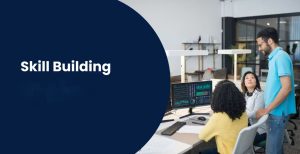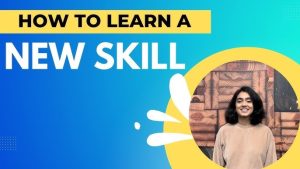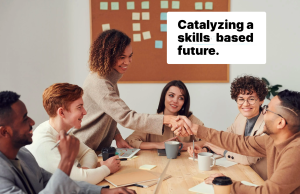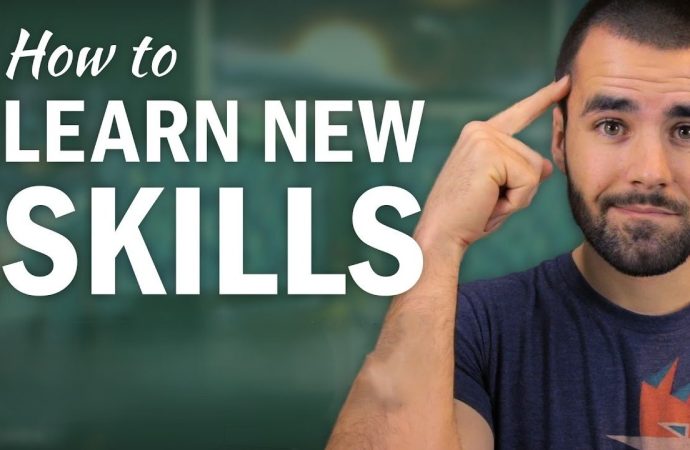Introduction Learning new skills is like opening a door to a world of exciting possibilities. Whether you want to learn a new language, play a musical instrument, or master a craft, every skill starts with a small step. In this article, we will share the best tips on how to learn new skills quickly and
Introduction
Learning new skills is like opening a door to a world of exciting possibilities. Whether you want to learn a new language, play a musical instrument, or master a craft, every skill starts with a small step. In this article, we will share the best tips on how to learn new skills quickly and enjoyably. We will cover simple strategies, helpful ideas, and useful habits that make learning fun and easy. Even kids can use these tips to discover new hobbies and talents. With a clear plan and a positive mindset, you can start your journey of skill building and self-improvement today.
Understanding Skill Building

Image by: Yandex.com
Skill building means learning something new that can help you grow, whether it is for fun or for work. When you set out to learn new skills, you are trying to improve yourself. This process involves practice, patience, and a little bit of creativity. It is not just about reading a book or watching a video; it is about taking action. With learning strategies and clear goals, you can slowly master even the most challenging skills. When you work on self improvement, you become more confident and ready for new challenges. A strong foundation in skill building makes future learning easier and more enjoyable.
Steps to Start Learning New Skills

Image by: Yandex.com
The journey to learning a new skill begins with a few simple steps. First, decide what you want to learn. Think about your interests and hobbies. It could be something creative like drawing, something technical like coding, or even a new sport. Once you have an idea, set a clear goal. Your goal might be as simple as practicing for 10 minutes each day or mastering one new technique every week.
Next, gather resources. Look for books, online tutorials, videos, and classes that explain the basics. Find tools and materials that can help you practice. For example, if you want to learn how to play the guitar, you need a guitar and some beginner lessons. With a clear goal and the right tools, you are ready to start your learn new skills journey. These initial steps create a roadmap that guides you along the way to success.
How to Use Technology to Enhance Your Learning

Image by: Yandex.com
Technology offers many tools to help you learn new skills. There are many apps, websites, and online courses designed to make learning fun and interactive. For example, language learning apps use games and quizzes to help you practice new words. Video tutorials can show you step-by-step instructions on a subject like drawing or cooking. Virtual communities allow you to share your progress and get feedback from others.
Using technology can also help you track your progress. Fitness apps, for instance, allow you to log your daily exercises and see how you improve over time. When you incorporate these digital tools into your learning routine, you make the process more engaging. These learning strategies make it easier to study at your own pace and revisit difficult topics. Technology is a great friend on your journey of skill building because it offers instant support and a wealth of information.
How to Practice Smart: Tips for Effective Learning

Image by: Yandex.com
To truly master a new skill, practice smart. This means focusing on quality rather than quantity. Instead of practicing for many hours without direction, spend shorter periods focused on specific tasks. For instance, if you are learning to draw, practice one technique at a time. Analyze your work and look for areas to improve. Using techniques like breaking tasks into smaller steps can make big goals seem more manageable.
Another smart tip is to teach what you learn. When you explain a new skill to someone else, it helps reinforce your own understanding. This method of learning is very effective and makes your progress more visible. Keeping a record of your achievements and setbacks also helps you learn from your experiences. These skill building tips are simple yet powerful ways to make your learning journey more productive.
How to Create a Supportive Learning Environment
Your surroundings can have a big impact on how well you learn. A quiet, organized space makes it easier to focus on your studies. Choose a spot with good lighting and minimal distractions. You can also decorate your space with inspiring quotes, photos, or items that remind you of your goals. A supportive environment is key to self improvement and helps you learn new skills more effectively.
It is also helpful to create a schedule that fits your personal rhythm. Some people work best in the morning, while others prefer to study in the evening. Find out what works for you and design your learning space and routine around that. With a dedicated and inviting area, you can focus better and enjoy your journey to mastery. A peaceful space is a crucial part of effective learning.
How to Measure Your Progress and Stay Encouraged

Image by: Yandex.com
Tracking your progress is a great way to see how far you have come. You can keep a journal or use a simple app to record your achievements. Write down what you learned each day and note any improvements. Seeing your progress on paper is a great motivator. It helps you understand that every small step is important and adds up over time.
Regular progress checks also allow you to adjust your learning plan if needed. If you feel stuck, review your notes and try a different technique. This proactive approach ensures that you continue to grow and remain excited about your learning journey. By celebrating even the smallest victories, you stay motivated and inspired to keep moving forward.
Challenges of Learning New Skills
Despite the many benefits, learning new skills comes with challenges. Some people struggle with motivation, especially when the skill seems difficult or takes time to master. Additionally, lack of time and resources can make it hard for individuals to focus on learning. Overcoming these challenges requires perseverance, a positive mindset, and a willingness to learn from mistakes.
The Future of Learning New Skills

Image by: Yandex.com
As technology advances, the future of learning new skills looks promising. New tools and platforms will make learning more interactive and personalized. Virtual reality, artificial intelligence, and online education will provide new ways to teach and practice skills. The growing demand for flexible learning options will lead to even more accessible ways for people to develop their abilities, ensuring that lifelong learning continues to be an important part of personal and professional development.
Comparative Table: Learning Techniques for New Skills
Below is a simple table that shows some popular learning techniques that can help you learn new skills:
| Technique | Description | Benefit |
|---|---|---|
| Spaced Repetition | Reviewing material over increasing intervals | Enhances memory retention |
| Active Learning | Engaging directly with the material through practice | Improves understanding and skill mastery |
| Visual Learning | Using images, diagrams, and videos | Makes complex ideas easier to grasp |
| Peer Teaching | Explaining what you’ve learned to others | Reinforces knowledge and builds confidence |
| Hands-On Practice | Learning by doing, not just reading or watching | Develops practical skills and quick learning |
This table shows how different techniques work together to support your learning strategies and skill building journey. Using these methods can make studying more effective and enjoyable.
Conclusion
In summary, learning new skills is a fun and rewarding journey that everyone can enjoy. By setting clear goals, creating a supportive environment, and using smart learning strategies, you can easily master new abilities. Incorporate techniques such as spaced repetition, active learning, and peer teaching to enhance your progress. Celebrate small victories and maintain a positive mindset as you grow your knowledge and abilities. With dedication and practice, each step of your learning journey contributes to lifelong success and self-improvement.
















